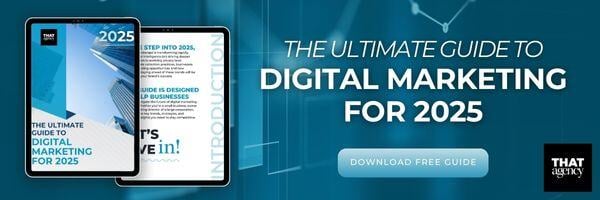Let’s be honest, marketing that feels like marketing, isn’t good marketing. If you’re constantly out there flashing a “buy this now” sign in front of people, they’re likely to do the opposite. This is where contextual marketing comes in and saves the day for your beloved content.
.png?width=640&name=Create%20Marketing%20People%20(1).png)
What is contextual marketing?
Just like its name implies, contextual marketing is the creation and distribution of content, paid or unpaid, to people who it makes sense to show it to. Simply put, it’s a fancy way of saying your marketing is targeted. Technology has allowed us to segment our audiences in a multitude of ways so delivering relevant marketing is delivering marketing that people love to interact with.
Why does relevant marketing work?
This type of content delivery works for one main reason. Its natural. It makes sense to show given the context of each user’s behavior and doesn’t feel like marketing. The secret to making people fall in love with your marketing, especially millennials, is to make it feel little as marketing as possible. No one wants to be sold, so don’t sell them.
Where should you use it?
Wherever it makes sense. There’s a fine line between push and pull tactics when it comes to digital marketing, so make sure wherever you decide to place your content or ads that it doesn’t interrupt the natural flow of a user’s experience.
Contextual marketing can increase your numbers across your digital marketing campaigns. Use it in your paid search campaign to deliver valuable ads based on specific keywords. Retarget on social media by using valuable site data to remind them of the value you can provide them. Set up automated email campaigns based on engagement on your site. The possibilities are endless, so let the creativity flow.
Why does context matter?
If I suddenly started talking about my affinity for spending time outdoors, you’d not only be taken completely off-guard, but you’d probably stop reading. Even though it’s something I love, there’s a time and place for everything, and find that balance is key to creating relevant marketing.
Context matters because without it, there is no flow. It’s just a bunch of random things on screens that might have value if people actually took the time to sift through. But they don’t, and you shouldn’t be aiming to be another random ad on a screen anyway.
“Well, how does it perform?”
I’m glad you asked. Google explains life as a series of moments, and as marketers, it’s our job to be there at the moments that make sense. When you focus on being there for the moments people are looking for the value you can deliver, it doesn’t feel like marketing, it’s just being there when your audience needs you.
Let’s look at some numbers Google has found…because stats are fun!
"51% of smartphone users have purchased from a company or brand other than the one they intended to because the information provided was useful."

"73% of consumers say that regularly getting useful information from an advertiser is the most important attribute when selecting a brand"

"69% of online consumers agree that the quality, timing, or relevance of a company’s message influences their perception of a brand."

"61% of smartphone users say they’re more likely to buy from companies whose mobile sites or apps customize information to their location."

"67% of users will switch to another site if it takes too many steps to purchase or get desired information."
Explore your contextual opportunities
Relevant marketing works. It’s simple, targeted, and at the end of the day, doesn’t feel like marketing to your audience. When your marketing has context, it has value. When there’s value, it’s natural to your audience’s buying journey. When you empower your audience to discover this value, their anti-marketing walls come down, and engagement rates go through the roof.





